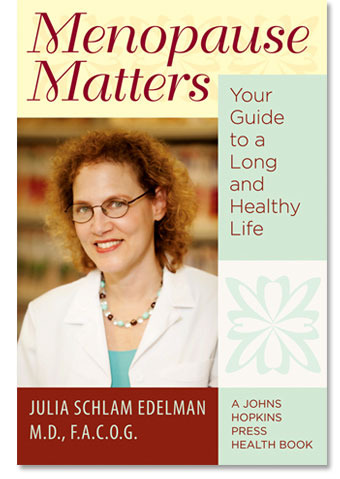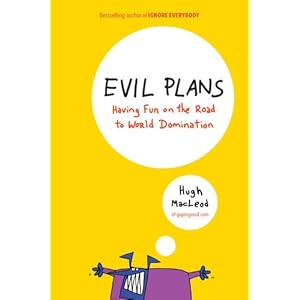
"If you can, be first. If you can't be first, create a new category in which you can be first." - Al Ries & Jack Trout, The 22 Immutable Laws of Marketing
There's something innately attractive about uniqueness.
To be unique you need to dominate a niche. I don't care what niche it is, but you need to dominate it. If you can't dominate the niche where you are, you need to create a new one.
How can you tell if you're considered to be unique? Pretty simply. There's a single two word phrase that people use to describe someone who's dominating a niche. You'll hear it used all of the time as a recommendation: "The best".
It doesn't matter what you're the best at, only that you're the best at it.
Now all uniqueness is not created equal. If you're 'the best orthopedic surgeon in the country', you're going to be sitting pretty. If you're 'the best orthopedic surgeon in Evanston, Wyoming', it's less of a talking point.
Perhaps you're in cosmetic medicine like a lot of the docs that I know. It's probable that there are dozens of plastic surgeons, dermatologists, and medical spas that are in your target area and trying to get to your target clients. How are you going to set yourself above the noise as the single choice? How are you going to get those patient referrals?
How are you going to position yourself as 'unique' in order to compete?
You're going to find something that you can be the best at.
You may be in family practice or internal medicine. Fine. You're clinical practice is general in nature, but that doesn't mean that there's no uniqueness to be had. You always start where you are.
Sure you have patients that already love you. So what. So does everyone else.
Like everyone in cosmetic medicine, already know that you’re ‘target’ is generally going to be women. You’re right of course, more than 95% of your clients will be female, but what else do you KNOW about the women that want YOU to be their cosmetic medical provider. If you’re like the average medspa, even those that have been doing this for years, not that much. You’ll also be able to deduce pretty easily that women looking for Botox. or fillers, or cosmetic surgery are generally over 30 and less than 55 or so. Right again. That’s a ‘second qualifier’. In fact, those two items put you on par with 99% of what cosmetic clinics know about their Botox and filler patients… but that’s not the end.
If this sounds like you, then you’ve joined the 99% of other providers who think they should target EVERYONE instead of a small, focused niche. In the best case, these clinics limit their success, in the worst, they set themselves up to fail miserably.
You need to learn how to target your perfect client with laser-like focus. With the right niche targeting, you’ll be able to tailor and optimize not only your services, but also your medspas pricing. And when you learn to target your services SPECIFICALLY to this person – making it truly personalized – they will pay virtually anything, and they’ll thank you for it.
Of course targeting this way isn’t easy. It takes a little work so it’s generally ignored by the lazy.
Let’s go through a quick example to set the stage. Imagine that you’re hired by a medical spa or laser clinic and you’re told, “Help us get more patients.”
The first question you ask should probably be, “Who are you trying to reach?”
If the response is, “Well, everybody. We just want a lot of them.” Turn in your notice. You’re doomed.
What’s wrong with this approach?
Think about it this; when was the last time you went out of your way to purchase a product that was just right for you, but it was also “just right” for your retired father and your 18-year-old neighbors kid? If you found such a product would you buy it? Would you pay a premium price for it? Of course not.
You’re looking for something that speaks directly to you. That serves YOUR needs – not your needs and everyone else. That’s why a woman will spend $600 on a Kate Spade handbag instead of the Target knock-off, men buy ‘men’s razors’ when cheaper women’s razors work just fine, and why your perfect target patient will pay you a premium and beg you to treat them.
Take note of this point because it’s important: If you’re targeting to EVERYBODY then you’re selling to NOBODY.
It may sound counter-intuitive but it’s true: The more you niche yourself, the more money you can make.
An excellent example of this is Johnson & Johnson Baby Shampoo. It’s been around forever and you probably already know the ‘No more tears’ slogan. Know who their market is? It’s not babies. Babies don’t by shampoo. In fact, it’s used by adults far more than it’s use on babies. Why, because it’s ‘niched’. It says right on the label who it’s for… even though they know that more adults use it.
You’re not offering exercise videos… you’re P90x who’s blowing the doors of of sales by targeting the hardest workout for the hardest bodies.
You’re not selling cooking lessons… you’re selling cooking lessons for new brides.
As a generalist, you have to make sure that you are one of the best in the industry, have unique service offerings, and you are considered accomplished in a few other fields.
If you do it persistently enough, you will OWN that niche. People will not be able to imagine that niche without you.
The secret to commanding premium rates is in identifying a very specific niche that buyers demand, and focusing on that niche while excluding everything else.
There's no really good short cut around this. If you don't already have any unique skill set, you're going to have to develop one. You can't hoodwink everyone into buyers by just saying that you're better. Decide on a single special attribute or 'specialty' and make it your own. Actually BE better at it in some way.
Oh, by the way, you can only pick one niche.
Have the confidence to find your niche, define who you are, then declare it again and again and again and again. If you target your martket smartly, over time you will own that niche.





 Post a Comment
Post a Comment




